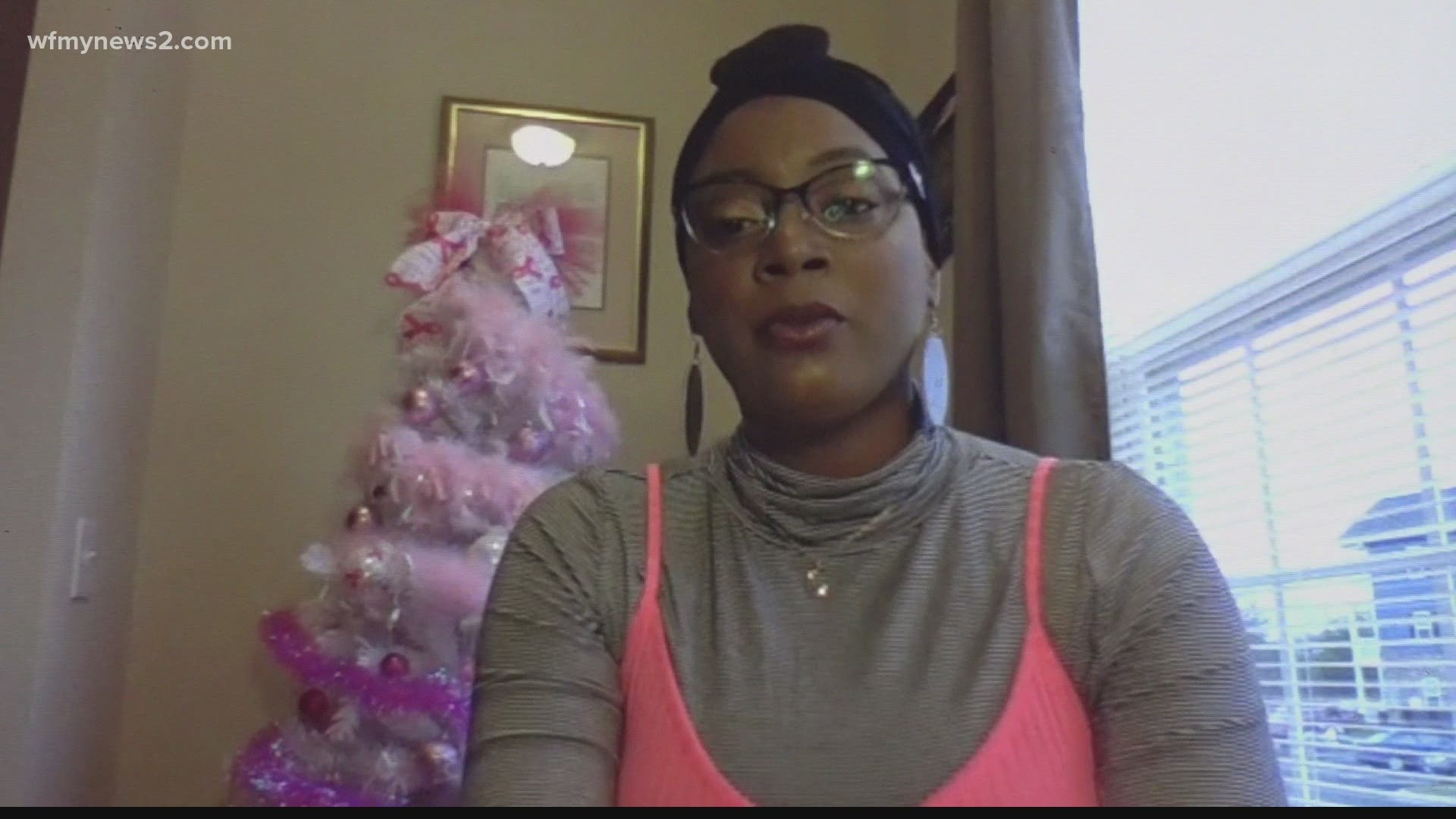GREENSBORO, N.C. — At age 32 Chelsea Haizlip is fighting a battle many may never encounter: breast cancer.
She was diagnosed with stage three breast cancer a year and a day after her mother rang the bell signifying the end her last treatment.
Haizlip is sharing her story because she believes it will help other people down the line.
Cancer runs in Haizlip's family.
"I knew there was a chance. But before my mom had even gotten breast cancer and I just thought that sat with my grandma and her sisters," Haizlip said.
Due to her family history, a doctor from her mother's team suggested she get genetic testing done.
Haizlip was told she had the BRCA 1 gene-- a mutation that gave her a higher chance of developing breast or ovarian cancer. But she didn't think it would happen so fast.
"I had my mammogram in June [of 2020] and everything was perfectly fine. And then in October, I started to feel some pain," Haizlip said.
She found a lump through self-examination and knew she had to get an MRI. She was luckily able to get one through a cancellation in November. Haizlip was diagnosed shortly after.
"I have invasive ductal carcinoma stage three and I have stage three on the left and stage two on the right," Haizlip said.
Haizlip says it's important to know your family history, because had she not been with her mother during treatments she may not have received advice from her mother's team to get a genetic test done.
"I don't want anybody else to go through the same thing that I'm going through. I don't want anybody else to experience the symptoms, the side effects that I've experienced," Haizlip said.
She adds you should talk with your doctor about genetic testing if others in your family have developed cancer. Without the test, she likely wouldn't have undergone a mammogram until she was 40 which is the current recommendation for women.
"I want people to know that there’s no age limit. I was thinking OK I carry the gene maybe I’ll get it in the future when I’m 50 or something since my mom is 53 but now it came at 32," Haizlip said.
She says the combination of testing, keeping up with regular mammograms, and paying attention to her body stopped things from being worse.
"I just want to prevent this if possible because it's not easy at all. It's not easy emotionally. It's not easy mentally. It's really hard," Haizlip said.
Haizlip has gone through two rounds of chemotherapy so far. She has 12 more to go. Then she'll undergo a bilateral mastectomy and reconstruction and radiation.
She calls her mom her living angel. And if it wasn't for her, Haizlip says she doesn't know how she'd get through this.

